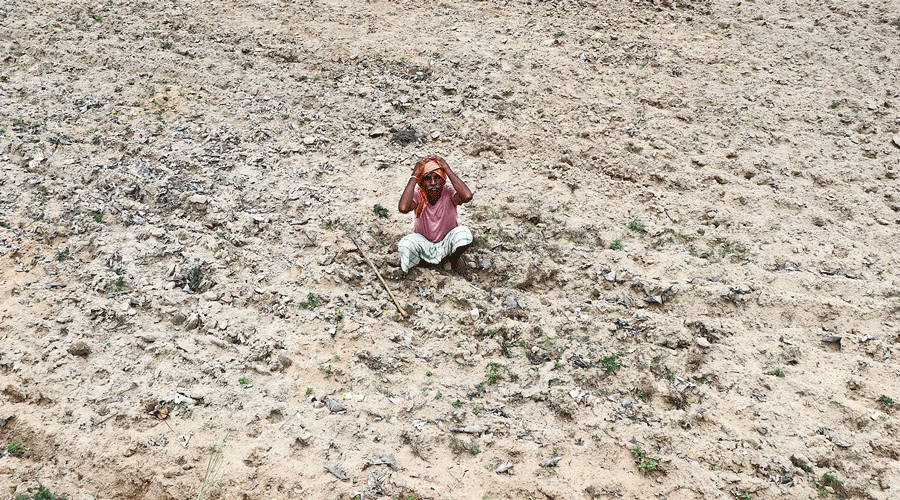The rainfall measurement in Jharkhand — inadequate till now — has become a matter of concern.
“The state, which is still reeling under the impact of the Covid-19 pandemic, is now staring at a drought-like situation,” a worried chief minister Hemant Soren said while addressing a gathering in Dumka recently.
He said that scanty rainfall has hit farming activities and the figures available from the meteorological department were not encouraging either.
This has affected the sowing process in the state as the sowing of paddy was recorded as less than 15 per cent, on average, across the state with some districts a much lower figure.
According to Ranchi Meteorological Centre (RMC), Jharkhand received 203.6mm of rainfall between June 1 and July 22. which showed a deficit of 51 per cent against the normal rainfall of 414.9mm during the period.
“Farmers who apprehend crop loss are advised to get them registered online,” agriculture minister Badal Patralekh informed in Ranchi the same day, adding the state could pay them compensation under Jharkhand Rajya Fasal Rahat Yojana, a crop relief scheme, in such cases.
According to the scheme, those suffering crop loss ranging between 30 to 50 per cent would be compensated at the rate of Rs 3,000 per acre up to a maximum of Rs 15,000, while those suffering more loss would get Rs 4,000 per acre, limited to Rs 20,000.
“We have also asked the district authorities to draw up contingency plans as the rainfall in 18 of the total 24 districts of the state was less than half of the normal rainfall till now,” agriculture director Nisha Oraon informed when contacted.
Actually, all the 24 districts got less than normal rainfall so far, but East and West Singhbhum districts with less than 20 per cent rain deficit are treated as placed within the normal range while Ranchi, Khunti, Dhanbad and Seraikela-Kharsawan have less than 50 per cent deficit.
All the rest 18 districts recorded more than 50 per cent rain deficit till Friday, Sahebganj being the worst hit with an 83 per cent deficit.
“We have also advised farmers not to sow such seeds that have long-duration maturity and instead opt for varieties with short-duration maturity,” Oraon further informed, adding the sale of long-maturity seeds was also banned for now.
The agriculture department also asked district officials to alert farmers through bulk messages on mobile phones or organising gatherings and even staging street plays in rural areas, she added.
“The state is now receiving some rainfall and will continue to do so till July 28 but the deficit is really too much to make it up immediately,” replied RMC in-charge Abhishek Anand when asked if the situation would improve soon.
Meanwhile, it was reliably learnt that the state government was also considering granting an increase of seed subsidy from the existing 50 per cent though a final decision was yet to be taken.











